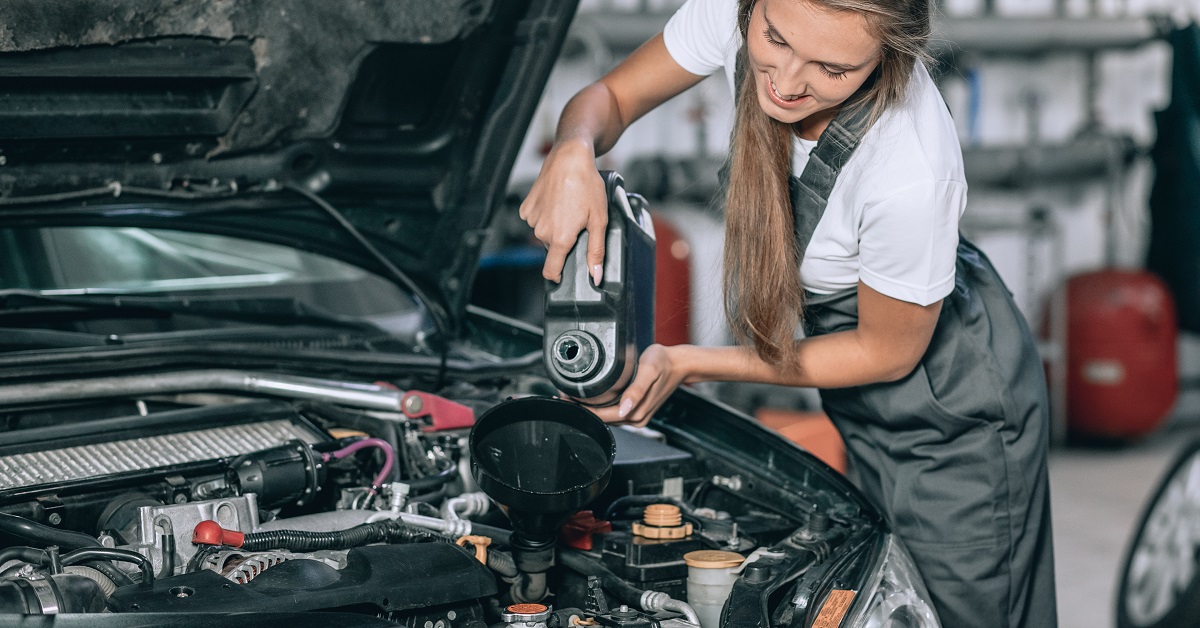All Categories
Featured
The timing belt is an important part of your engine, responsible for synchronizing the movement of different engine parts, such as the crankshaft and camshaft. This guarantees the engine's valves close and open at the proper times during the combustion cycle. While the timing belt might not be something you consider often, neglecting its upkeep can result in substantial engine damage and costly repair services. Below's why timing belt replacement is necessary for your lorry's long life and efficiency.
What Is a Timing Belt and How Does It Work? The timing belt is a rubber or composite material belt that connects the crankshaft to the camshaft in an interior burning engine. The camshaft regulates the opening and closing of the engine's consumption and exhaust shutoffs, and it must be timed perfectly with the activity of the pistons in the engine. The timing belt makes certain that these parts are in sync, allowing the engine to run smoothly.
If the timing belt ends up being or falls short broken, the camshaft and crankshaft will certainly no more be integrated, which can trigger the engine's shutoffs to strike the pistons. This brings about devastating engine damages and often needs pricey fixings and even an engine substitute.
Why Is Timing Belt Substitute Important? In time, the timing belt can use down because of rubbing, warm, and general engine wear. While it may appear like a little concern, a faulty timing belt can lead to significant engine troubles. Below's why prompt substitute is critical:
Protecting Against Engine Damages: As discussed, a damaged or slipping timing belt can cause the engine's shutoffs and pistons to clash. This leads to bent valves, damaged pistons, and in severe cases, a total engine failure. Replacing the timing belt before it breaks can avoid this costly damages.
Maintaining Engine Performance: A worn-out timing belt can interfere with the synchronization of the engine parts, lowering general engine efficiency. Replacing the belt helps maintain optimal engine function, guaranteeing smooth operation, improved gas performance, and better efficiency.
Avoiding Unforeseen Malfunction: A damaged timing belt can leave you stranded on the side of the roadway, triggering a major inconvenience. By replacing the timing belt at the advised intervals, you can avoid the risk of an unanticipated malfunction, particularly in the center of a lengthy trip or when you least anticipate it.
![]()
Saving Money in the future: While timing belt substitute can seem like an expenditure you could desire to postpone, it's much cheaper than the price of fixing or changing a harmed engine. The replacement expense is relatively budget-friendly contrasted to the substantial repair work required if the timing belt breaks. Aggressive maintenance can conserve you thousands of dollars out of commission and protect your lorry's worth.
When Should You Replace the Timing Belt? The timing belt replacement schedule can differ relying on your car's make and design. In general, many makers suggest replacing the timing belt every 60,000 to 100,000 miles. It's constantly best to consult your proprietor's handbook or a relied on auto mechanic for details suggestions for your automobile.
Indications that your timing belt may need substitute consist of unusual engine noises such as whining or ticking, difficulty starting the engine, or a visible reduction in engine efficiency. If you experience any of these signs, it is very important to have the timing belt evaluated promptly.
![]()
Conclusion. Changing the timing belt at the suggested intervals is a key component of maintaining your engine's health and wellness and making certain that your vehicle runs efficiently. A damaged timing belt can result in expensive repairs, engine failure, and unforeseen break downs, which can be prevented with appropriate upkeep. If you notice any indicators of wear or damages, constantly adhere to the producer's recommended timing belt substitute timetable and speak with an expert technician. By maintaining this important part of your engine in great problem, you'll shield your auto from expensive repair work and delight in lots of even more miles of carefree driving.
What Is a Timing Belt and How Does It Work? The timing belt is a rubber or composite material belt that connects the crankshaft to the camshaft in an interior burning engine. The camshaft regulates the opening and closing of the engine's consumption and exhaust shutoffs, and it must be timed perfectly with the activity of the pistons in the engine. The timing belt makes certain that these parts are in sync, allowing the engine to run smoothly.
If the timing belt ends up being or falls short broken, the camshaft and crankshaft will certainly no more be integrated, which can trigger the engine's shutoffs to strike the pistons. This brings about devastating engine damages and often needs pricey fixings and even an engine substitute.
Why Is Timing Belt Substitute Important? In time, the timing belt can use down because of rubbing, warm, and general engine wear. While it may appear like a little concern, a faulty timing belt can lead to significant engine troubles. Below's why prompt substitute is critical:
Protecting Against Engine Damages: As discussed, a damaged or slipping timing belt can cause the engine's shutoffs and pistons to clash. This leads to bent valves, damaged pistons, and in severe cases, a total engine failure. Replacing the timing belt before it breaks can avoid this costly damages.
Maintaining Engine Performance: A worn-out timing belt can interfere with the synchronization of the engine parts, lowering general engine efficiency. Replacing the belt helps maintain optimal engine function, guaranteeing smooth operation, improved gas performance, and better efficiency.
Avoiding Unforeseen Malfunction: A damaged timing belt can leave you stranded on the side of the roadway, triggering a major inconvenience. By replacing the timing belt at the advised intervals, you can avoid the risk of an unanticipated malfunction, particularly in the center of a lengthy trip or when you least anticipate it.

Saving Money in the future: While timing belt substitute can seem like an expenditure you could desire to postpone, it's much cheaper than the price of fixing or changing a harmed engine. The replacement expense is relatively budget-friendly contrasted to the substantial repair work required if the timing belt breaks. Aggressive maintenance can conserve you thousands of dollars out of commission and protect your lorry's worth.
When Should You Replace the Timing Belt? The timing belt replacement schedule can differ relying on your car's make and design. In general, many makers suggest replacing the timing belt every 60,000 to 100,000 miles. It's constantly best to consult your proprietor's handbook or a relied on auto mechanic for details suggestions for your automobile.
Indications that your timing belt may need substitute consist of unusual engine noises such as whining or ticking, difficulty starting the engine, or a visible reduction in engine efficiency. If you experience any of these signs, it is very important to have the timing belt evaluated promptly.

Conclusion. Changing the timing belt at the suggested intervals is a key component of maintaining your engine's health and wellness and making certain that your vehicle runs efficiently. A damaged timing belt can result in expensive repairs, engine failure, and unforeseen break downs, which can be prevented with appropriate upkeep. If you notice any indicators of wear or damages, constantly adhere to the producer's recommended timing belt substitute timetable and speak with an expert technician. By maintaining this important part of your engine in great problem, you'll shield your auto from expensive repair work and delight in lots of even more miles of carefree driving.
Latest Posts
Seamless Light Weight Aluminum Gutters: The Smart Choice for Your Home
Published May 28, 25
1 min read
Shield Your Home with Quality Residential Roof Covering
Published May 24, 25
1 min read
How Chicago Drivers Prefer Montclare Auto Repair for Reliable Service and Great Savings
Published May 23, 25
1 min read
More
Latest Posts
Seamless Light Weight Aluminum Gutters: The Smart Choice for Your Home
Published May 28, 25
1 min read
Shield Your Home with Quality Residential Roof Covering
Published May 24, 25
1 min read
How Chicago Drivers Prefer Montclare Auto Repair for Reliable Service and Great Savings
Published May 23, 25
1 min read